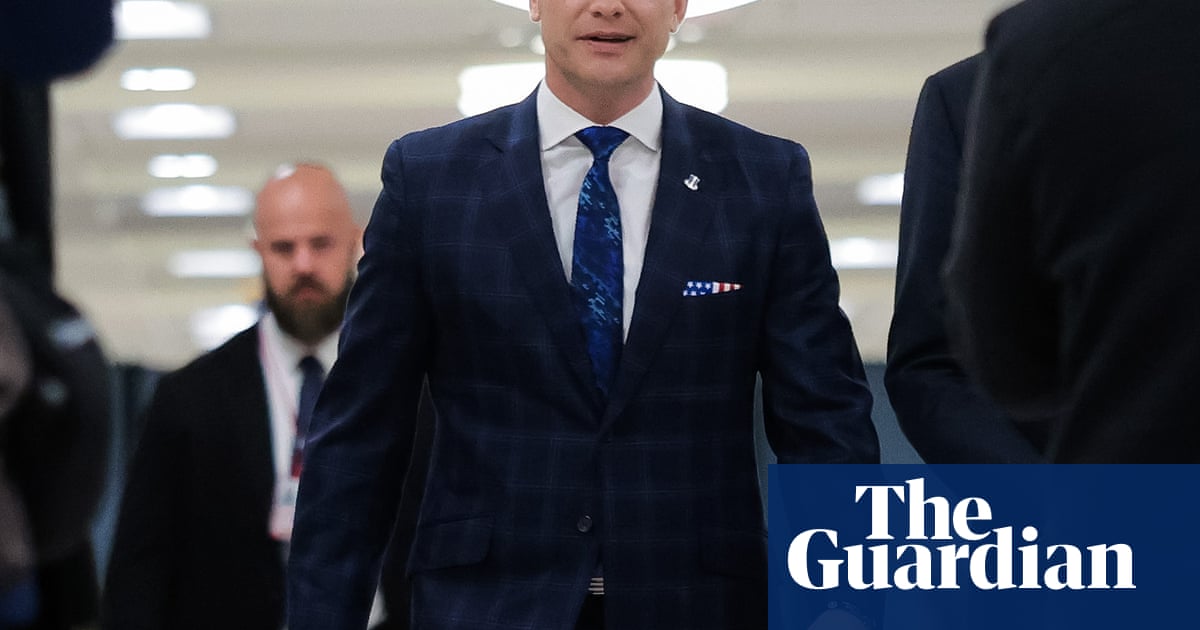The Pentagon underPete Hegseth stopped arms shipments to Ukraine in February without being ordered to do so by Donald Trump, the newly inaugurated president,Reuters reports. The order – which the news agency saidblindsided top US national security officials, and the Ukrainians– was reversed within a week, but itcost up to $US2.2m to cancel the 11 flightsinvolved, according to records. Reuters said records showed Hegseth gave a verbal order for the stoppage after a 30 January Oval Office meeting whereonly the idea of stopping military assistance was discussed.
Ukraine’s air defence units were trying repel a missile attack on Kyiv, the mayor said, after explosions shook the city just after 1am local time on Wednesday. ARussian ballistic missile attack killed three people including a childat Sumy in Ukraineand wounded 10 other people – most of them children, one of whom was in a severe condition, Ukrainian officials said.
AUkrainian drone barrageforced Russia to close a dozen airports deep behind the frontlineon Tuesday as foreign leaders began gathering in Moscow for a second world war “Victory Day” parade. Moscow saidUkrainehad launched more than 100 drones targeting a dozen regions, including on the Russian capital. Kyiv, meanwhile, said Russia attacked with 136 drones.
Volodymyr Zelenskyyhas asked his government to seek help from Ukraine’s western allies to finance and developinterceptor drones to knock down attack dronessuch as Russia’s Iranian-designed Shaheds. “We will develop this direction as much as possible and each region will have its own responsibility specifically for this task,” said the Ukrainian president. Ukraine already has some capability, with videos regularly posted online showing Ukrainian UAVspursuing and ramming Russian attack drones out of the air, while other interceptors can fire shotgun cartridges to shoot down enemy UAVs.
Catholic cardinals gathered in Rome ahead of the conclave to elect a new pope called on Tuesday for a ceasefire and negotiations without preconditions.Their statement “noted with regret that there has not been progress in promoting peace in Ukraine, the Middle East and many other parts of the world”, while offering their “heartfelt appeal to all parties involved to reach as soon as possible a permanent ceasefire and to negotiate, without pre-conditions” a longer-term peace.
Ukraine and Russia handed over 205 prisoners of war eachin an exchange on Tuesday, both sides announced.
